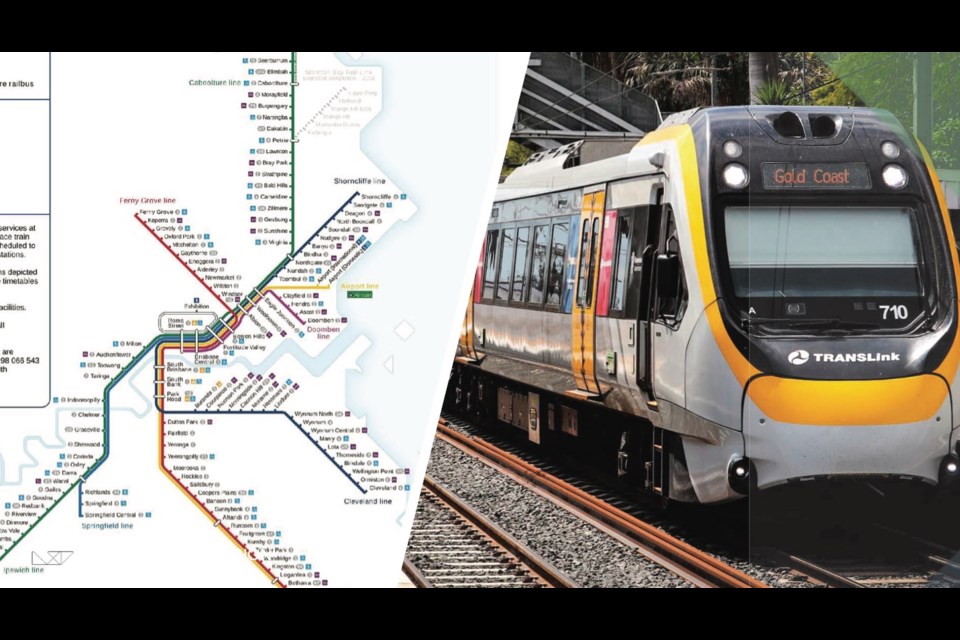A director with Mountain Valley Express, a non-profit society wanting regional rail in southwestern B.C., asked Coquitlam City Hall for a letter of support for TransLink to study a new network that would run through the Tri-Cities, as well as to create a property directory for future corridors.
He left empty-handed.
Instead, the city’s committee of council on July 15 thanked Lee Haber for his “enthusiasm” and advocacy, and directed his organization to follow-up with the provincial government given TransLink’s constraints to fund such a project.
In his presentation, Haber, a railway engineer and the strategy and partnerships director with Mountain Valley Express (MVX), told the committee the proposed rail network would stretch from Chilliwack to Whistler and run on parallel tracks to the Canadian Pacific Kansas City (CPKC) freight trucks.
It would differ from the diesel-run West Coast Express commuter rail as it would run on electricity and travel in both directions — all day.
And it would operate at twice the speed of SkyTrain, with the top speed at 160 km/h versus 110 km/h for West Coast Express.
As a result, Haber said, commuters leaving Coquitlam Central would reach downtown Vancouver in 22 minutes compared with 53 minutes by rapid transit and 40 minutes by car.
Coquitlam could be served by three stations, he said: at Fraser Mills, near səmiq̓ʷəʔelə/Riverview Hospital and at Coquitlam Central.
He also cited the following travel times for the regional rail from Coquitlam Central:
- an hour and 51 minutes to Whistler
- 30 minutes to Vancouver International Airport
- 34 minutes to Horseshoe Bay
Mayor Richard Stewart said he was skeptical of the travel claims and noted of the Tsawwassen ferry terminal distance from Surrey Central, “You can’t get there in a helicopter that fast.”
But Haber contended that, with the right advanced planning, the distance could be achieved if TransLink prepares for the corridors and infrastructure now, including tunnelling at Lougheed and under the First Narrows Bridge.
Coun. Brent Asmundson, who is a member of the TransLink Mayors’ Council, called on MVX to lobby the provincial government, which he said is already studying a regional rail plan.
And he and Coun. Matt Djonlic said penning an advocacy letter to TransLink would be premature given the current funding crunch that agency faces.
Stewart and Djonlic said council’s urgent focus with TransLink right now is to make sure bus service isn’t cut for Coquitlam.
Committee chair Coun. Trish Mandewo, the president of the Union of BC Municipalities (UBCM), said more public transportation options are needed for the region and “the province needs to take the leadership role on this.”
She highlighted the GO Transit system serving Greater Toronto and rail networks in Europe, which she has travelled on, as being effective for commuters.
Haber pointed out other frequent regional rail systems in similar-sized jurisdictions around the world like in Brisbane, Australia, which has a 689-km network in and around its urban area.
These types of transportation modes, Haber said, are:
- better for the environment by reducing road congestion
- meet equity goals by reducing household expenses
- spur economic growth
📣 SOUND OFF: What do you think about Mountain Valley Express' proposal for a regional rail service? Would it help you with your commute? Send us your comments for online publication by emailing [email protected].





